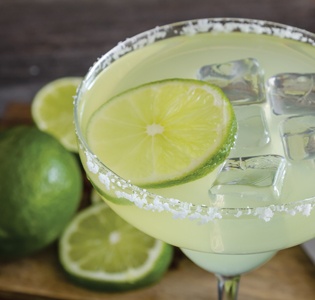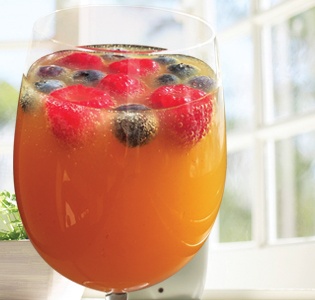Alcohol health claims are misleading. Get the real story on how alcohol in beer and wine damage your body, and how it's really polyphenols that you need.
Spring is here! The weather is getting (slightly) warmer and the days are becoming longer. For some, the prospect of knocking back a cold one or a glass of wine to celebrate the end of hibernation sounds tasty. For others, the red wine has been continually flowing to comfort in these cold months. And right when you think it’s time to make a clean break from alcohol, some article circulates claiming it can help your heart, burn fat or even boost memory. Now, what I’m about to say is not meant to ruin your day, but...
Alcohol health claims are incredibly misleading
So why are medical journals and media outlets pushing to normalize alcohol consumption? In these studies, scientists are actually finding some benefits. But those benefits aren’t coming from the alcohol. Rather, they come from the presence of polyphenols in the alcohol. Polyphenols are what gives fruits and vegetables their color. Consumption of adequate levels of polyphenols helps support digestive health, reduce inflammation, slow the aging process and increase athletic performance.
The Real Story on Booze
How the polyphenols are delivered when consuming wine and beer comes from the fact that the alcohol helps extract polyphenols from the grapes or the hops. However, alcohol is also a toxin that puts stress on your body. We should be rethinking the message that moderate alcohol consumption is good. Here’s a refresher on the disadvantages of consuming alcohol.
Alcohol Damages the Body
The principal type of alcohol found in alcoholic beverages, ethanol, is a reactive chemical that can cause damage to DNA, proteins and lipids. It makes the gut more leaky, thereby increasing the entry of bacterial fragments that cause metabolic endotoxemia, leading to obesity, metabolic syndrome and diabetes. When metabolized in the liver, alcohol causes inflammation that leads to scar tissue formation resulting in cirrhosis. Also, pure alcohol gets converted to a toxic chemical known as acetaldehyde. When not properly metabolized, the buildup of acetaldehyde can cause damage to the heart muscle as well as other organs, like the liver.
Alcohol Is Freaking Addictive!
The truth is alcohol activates the dopamine reward system. The more endorphins released, the happier you feel and the more likely you are to crave alcohol. When cravings meet physical dependence, binge drinking or alcohol abuse turns into alcohol addiction. 14% of Americans (32M)have alcohol abuse problems.1 Let’s not make it 15%.
Alcohol Disturbs the REM Sleep Patterns
Although alcohol initially acts as a sedative, it can lead to overall decreased sleep. The more you drink before going to bed, the greater the toxic effects as it metabolizes. And as the alcohol starts to wear off, your body can come out of deep sleep and back into REM sleep, which is much easier to wake from. So if you think someone dosed you with caffeine while you were sleeping, they didn’t. It’s the booze.
Get Your Polyphenols Elsewhere
Your best health decision is to consume a lot of polyphenol-rich carbohydrates and forget the alcohol. But polyphenols are found in low concentrations in colorful fruits and vegetables. It’s like that Total cereal commercial from the 80’s. The amount of favorable carbohydrates you’d need to consume to receive benefits of polyphenols is 7 to 13 servings a day!
Purified extracts are the best way to obtain the highest levels of polyphenols on a daily basis. MaquiRx is the best source as it contains the most water-soluble polyphenols known. It’s an extract from the Maqui berry that is incredibly rich in a special class of polyphenols, delphinidins. This unique polyphenol has anti-inflammatory and anti-aging properties, controls metabolism, increases chemical energy production and slows down the aging process.
What if you still want "the sauce"?
If you still prefer a drink, follow these guidelines:
- Treat Alcohol as a Carbohydrate – Balance alcohol with protein to help stabilize blood sugar levels. Pair a glass of wine and piece of cheese, or add a couple of chicken wings to that beer order.
- Avoid Drinker’s Remorse – To avoid feeling out of sorts the next morning, take an aspirin to help reduce the inflammation caused by the metabolism of the alcohol, get a glass of water, then go to bed.
- Try a Mocktail Instead – Refreshing and delicious, make a drink kids and adults can appreciate.
Mocktail #1: Peach Bellini
|
Get the recipe for Peach Bellini Mocktail.
|
Mocktail #2: Zone Margarita

A refreshing non-alcoholic take on the classic margarita. Fresh lime, sparkling orange flavor, a pinch of sweet and a salt rim energizes all your taste buds.
Get the recipe for Zone Margarita Mocktail. |
Enjoy!







Let Us Know What You Thought about this Post.
Put your Comment Below.